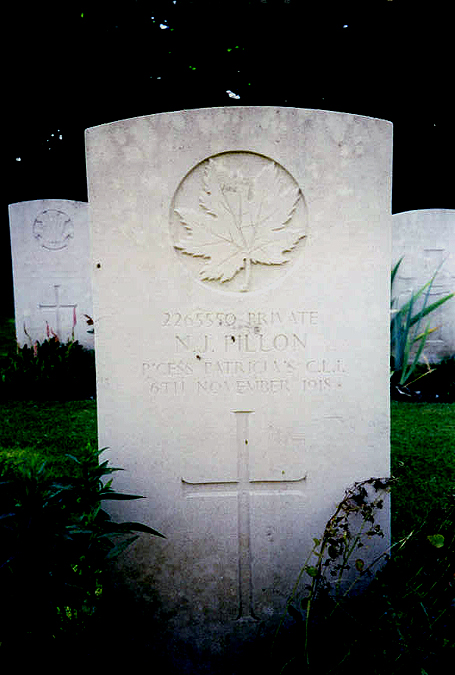 |
Norman Joseph Pilon and his first cousin, Theodore James Pilon
both enlisted with the Signal Training Depot, Canadian Engineers on the
same day in late May of 1917. By then, the realities of the war in
Europe were known, and these two barely 20 year old nonetheless went ahead
and volunteered. The Conscription Act of 1917 had not yet been voted on,
let alone put into effect. Who could have known how differently the
Great War would have dealt with these two cousins who were neighbours on
Peter Street (428 and 432) in Windsor, their fates sealed forever on May
25th, 1917.
Theodore James would remain with the Signals and serve in Canada and
in England. Norman Joseph would also cross the Atlantic, but he would
also cross the English Channel and fight in France with the Eastern Ontario
Regiment of the Princess Patricia's Canadian Light Infantry (PPCLI). In
fact, Norman Joseph would be wounded a first time in August of 1918 and
return to his unit less than a month later to be wounded a second time
within days of his return during the Battle of the Canal du Nord and Cambrai.
This time, the wounds were much more serious and he would eventually die
from them after nearly 6 weeks. Norman Joseph would die on November
6, 1918, barely 5 days before the end of the Great War. Did he know
the end of the war was imminent? Did he realize his own end was near?
His records, kept at the National Archives of Canada tell us how his medals
and a Memorial Cross were sent to his mother in Windsor. Did she
receive word of her son's death before of after she knew of the end of
the war? How did their neighbourhood deal with such a great, joyous
event as the end of that war when at virtually the same time they had just
learned of the disappearance of one of the street's vigorous young people?

|



